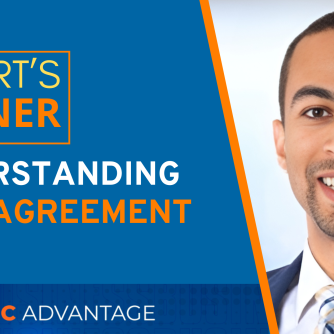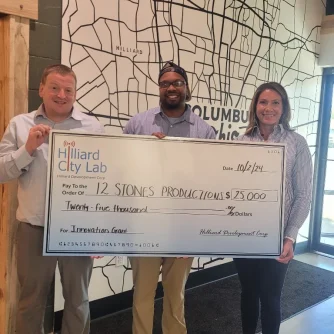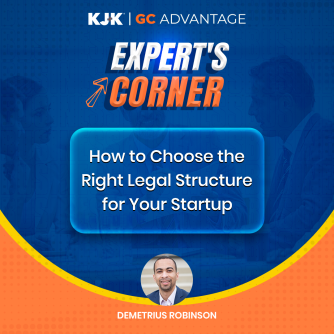In the world of startups, raising capital is often one of the most critical yet complex tasks for founders. From venture capital to angel investors, there are many paths to securing funding, but one method that has gained significant traction is the use of SAFE agreements.
To break down what SAFE agreements are and why it’s essential for founders to understand their implications, Elio Harmon, Host of the 614Startups Podcast, sat down with Demetrius Robinson, Startup Legal Partner with KJK. Here’s an insightful conversation that every founder should pay attention to.
Elio Harmon:
Demetrius, it’s great to have you on the show! Let’s start with the basics for our readers. Can you explain what a SAFE agreement is and why it’s become a popular tool for startups raising early-stage funding?
Demetrius Robinson:
Thanks for having me, Elio! A SAFE, or Simple Agreement for Future Equity, is essentially a contract between a startup and an investor that promises future equity in the company in exchange for funding now. What makes a SAFE unique is that it doesn’t require setting a valuation at the time of investment. Instead, the investor provides capital today with the expectation that their SAFE will convert into equity in the future, typically during a priced round. SAFEs have become popular because they streamline the fundraising process for early-stage startups by removing the need to negotiate a valuation upfront, which can be tough when the company is still figuring things out.
Elio Harmon:
That sounds like a great option for early-stage founders. But, what are some of the key terms in a SAFE agreement that founders should be aware of, and why do they matter?
Demetrius Robinson:
There are a few critical terms in a SAFE that every founder needs to understand—most importantly, the valuation cap and discount rate. The valuation cap sets a maximum price at which the SAFE will convert into equity, which protects the investor if the company’s value skyrockets before the next round of funding. The discount rate, on the other hand, gives investors a discount on the share price when the SAFE converts during a future priced round. These terms can have a big impact on how much equity the founders retain. If a cap is too low, for example, the founder could end up giving away more ownership than they anticipated when the SAFE converts. It’s also important to note that SAFEs don’t give investors voting rights until they convert to equity, which can be an advantage for founders looking to retain control early on.
Elio Harmon:
Let’s dive into that a bit more—dilution is something that many founders don’t think about until it’s too late. How can founders protect themselves from excessive dilution when raising on a SAFE?
Demetrius Robinson:
You’re absolutely right, Elio. Dilution can sneak up on founders if they aren’t careful. One of the best ways to protect yourself is by negotiating a fair valuation cap. If the cap is too low, you’re essentially giving away more of your company at a lower price when the SAFE converts. Founders should also consider how many SAFEs they’re issuing and to whom—raising too much capital through SAFEs without switching to a priced round can lead to a large portion of the company being tied up in future equity obligations. Another thing to keep in mind is to avoid issuing SAFEs to just anyone. Work with strategic investors who not only bring capital but also add value to the business, whether through mentorship, connections, or expertise. Finally, always have a clear plan for when you’ll move from SAFEs to a priced equity round to control dilution more effectively.
Elio Harmon:
That’s solid advice. So, when a founder is considering using a SAFE agreement to raise funds, when should they get a lawyer involved? What role do you and other legal experts play in this process?
Demetrius Robinson:
Founders should involve a lawyer as early as possible, ideally before they even start speaking to investors about SAFEs. Lawyers help make sure the terms are clear, fair, and aligned with the long-term goals of the business. For example, I work with founders to help them understand what each clause in the agreement means, what’s negotiable, and how these agreements will impact the company in the future. This is crucial because every SAFE is different, and investors often customize them with provisions that founders might not fully understand. My role is to review those agreements, point out any potential red flags, and ensure that the founders’ interests are protected. A well-structured SAFE can help propel your company forward, but if you’re not careful, it can also lead to unexpected complications down the line.
Elio Harmon:
Last question, Demetrius. With more founders using SAFE agreements in Columbus and beyond, what trends are you seeing in the startup ecosystem when it comes to raising capital through SAFEs?
Demetrius Robinson:
I’ve definitely seen a rise in the use of SAFEs here in Columbus, especially in the tech startup scene. Founders appreciate the simplicity and flexibility they offer compared to traditional equity rounds. We’re also seeing more customized SAFEs, with terms that are being tailored to meet the needs of both investors and founders. For example, some investors are looking to add provisions around liquidity preferences or conversion triggers, while founders are becoming more savvy about negotiating caps and discounts to protect their equity. The key trend is that both sides—investors and founders—are getting more sophisticated in how they approach SAFEs, which is great for the growth of the startup ecosystem as a whole.
Elio Harmon:
Demetrius, this has been an incredibly insightful conversation. Thank you for breaking down SAFE agreements and explaining why it’s so important for founders to understand the terms before jumping into fundraising. For those looking to learn more or who need legal assistance, where can they reach you?
Demetrius Robinson:
Thanks for having me, Elio! It was a pleasure. If any founders out there have questions about SAFEs or other legal aspects of raising capital, they can reach me through KJK.com, or they can connect with me on LinkedIn. I’m always happy to help guide entrepreneurs through the complexities of startup law.
Elio Harmon:
That’s fantastic. Thanks again, Demetrius! And to our listeners, if you’re in the middle of fundraising or planning to raise capital, make sure you understand your options and the potential impact of a SAFE agreement. Stay tuned for more great conversations right here on the 614Startups Podcast.







